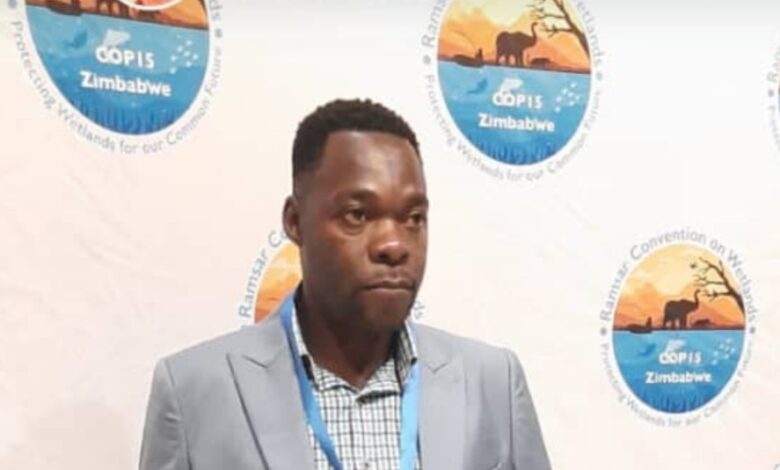Fossil fuels, mining, and wetland destruction: Zimbabwe youth raise alarm at COP15

Thembelihle Mhlanga
VICTORIA FALLS — In a powerful call to action at COP15, Zimbabwean youth leaders and conservationists warned that fossil fuels and mining activities are accelerating the destruction of the country’s wetlandsecosystems crucial for climate resilience, biodiversity, and water security.
Speaking during the Ramsar Convention on Wetlands conference hosted in Zimbabwe, Manica Youth Assembly Director Jusa Kudherezera emphasized that wetlands are under unprecedented threat. “These ecosystems act as natural sponges, mitigating floods and purifying water. But fossil fuels are worsening climate impacts like extreme weather, which degrade our wetlands,” said the NGO leader.
Zimbabwe is making strides in wetland protection as it hosts this global gathering, but speakers stressed that stronger commitments are needed.
Kudherezera urged delegates to use COP15 as a platform to share best practices and strengthen commitments under the Ramsar Convention. “The urgency to protect wetlands has never been greater,” he added, citing fossil fuel combustion and unsustainable development as key drivers of ecosystem loss.
Independent conservationist Nkululeko Dumani stressed the need for grassroots action. “The government must engage communities and local stakeholders to stop wetland destruction,” he said. “These communities are the first line of defense.”
Melusi Ncube, another COP15 delegate, singled out mining as the top threat to wetlands. “Mining is contaminating these sensitive ecosystems. We need to strike a balance between development and conservation.”
With over 2,400 wetlands of international importance globally—and 7 Ramsar sites in Zimbabwe—COP15 is a critical moment to rethink how nations protect these lifelines of nature. Kudherezera concluded with a stark warning: “We must act now. Wetlands are key to our climate survival. Let’s not wait until it’s too late.”





